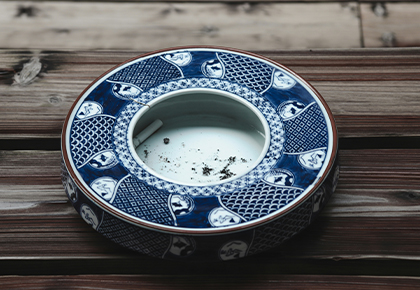Wednesday April 16, 2025
On August 28, 2017, the administration of former New York City mayor Bill de Blasio enacted Local Law 147. For Class A multifamily buildings, the law prohibits smoking in indoor common areas of a multifamily building and requires rental building owners and condominium and cooperative boards to enforce a smoking policy. Compliant smoking policies must clearly define where smoking is prohibited or permitted at the property.With the legalization of smoking marijuana in New York State, can a board or landlord enforce a smoking policy that prohibits smoking marijuana on their property?
Our in-house compliance team has compiled the most common questions about marijuana use in multifamily buildings to help our clients enforce building policies the right way.
Is it legal for people to smoke marijuana in their apartments?
 New York State has legalized smoking marijuana, but federal law still classifies marijuana as illegal. This can complicate compliance for landlords and condo/co-op boards.
New York State has legalized smoking marijuana, but federal law still classifies marijuana as illegal. This can complicate compliance for landlords and condo/co-op boards.Under the Marijuana Regulation and Taxation Act (MRTA), adults 21 and older are permitted to smoke cannabis in areas where smoking tobacco is legal. However, there are a number of New York City laws that restrict smoking in multifamily apartment buildings.
Can boards and landlords prohibit smoking marijuana in common spaces and outdoor amenities?
New York City currently prohibits smoking and vaping of any substance in all indoor common areas of residential buildings with three or more residential units. This applies to rental properties, as well as condos and co-ops.Boards and landlords can also expand smoke-free building policies to include outdoor common areas, including courtyards and rooftops, as well as a private balcony, terrace, or patio. Thus, the right to smoke marijuana may be limited.
Are there exceptions for residents who are prescribed medical marijuana?
Medical marijuana is legal in New York and is protected under state law for those with a valid prescription. However, medical use does not automatically override a building’s smoke-free policy.New York State’s Office of Cannabis Management states: “A landlord cannot refuse to rent to a tenant who consumes cannabis, but landlords, property owners, and rental companies can still ban the smoking or vaporizing of cannabis on their premises.”
If a board or landlord prohibits smoking in the building, residents who use medical marijuana may need to explore other consumption methods that do not produce smoke or odors. In some cases, residents may request reasonable accommodations under the Fair Housing Act if their medical condition is qualified as a disability.
Are boards and landlords required to enforce a smoke-free building policy?
Boards and landlords must comply with New York City law which prohibits all smoking in indoor common areas. They must also have in place a clearly stated smoking policy that defines where smoking is permitted or prohibited on the property.If a building is smoke-free, boards and landlords are responsible for enforcing rules fairly and consistently. This may include notifying residents of violations and following proper procedures according to their governing documents and state law.
For landlords of rent-stabilized or rent-controlled units, there may be additional rules regarding the right to change terms and conditions in the original lease with a tenant. Always consult your property management company or building attorney before implementing building-wide changes.
Does New York City law permit residents to grow marijuana in their apartment?
To the surprise of many boards and landlords, New York permits adults 21 and older to grow cannabis at home for personal use. Each adult may cultivate up to six plants (three mature and three immature), with a household maximum of 12 plants.However, this doesn’t give residents a free pass. Boards and landlords may still place limits on growing cannabis inside apartments, especially if it creates a nuisance, such as strong odors or potential fire hazards. These restrictions should be outlined in governing documents, leases, and house rules.
How should a board or landlord respond to resident complaints about marijuana smoke and odors?
As with any resident complaint, your property manager should help guide this process. The best response is prompt and properly documented. Note the date, time, and location of the complaint, and review your building’s governing documents or lease for any relevant smoke-free policies or nuisance clauses. If the source is known, notify the resident and keep the complainant(s) confidential.Need help managing resident complaints or considering a policy change?
At FirstService Residential, our in-house Compliance Department helps make things easy for our clients. We also equip our property managers with training and resources to manage sensitive issues.Our experts are here to support you with clear guidance, no matter how complex the circumstance.
Email us at [email protected] or call us at 212.324.9944.
This article is intended for general informational purposes only and is not intended as legal advice. Laws and regulations are subject to change. Always consult with a qualified attorney to confirm the current legal standards before drafting or amending rules.